The automotive industry is a testament to human ingenuity, a colossal force that has shaped economies, redefined transportation, and permeated nearly every aspect of modern life. From the earliest horseless carriages to the sophisticated electric vehicles of today, the story of cars is intricately linked with the vision of pioneering entrepreneurs, the industrial might of nations, and the relentless pursuit of innovation.
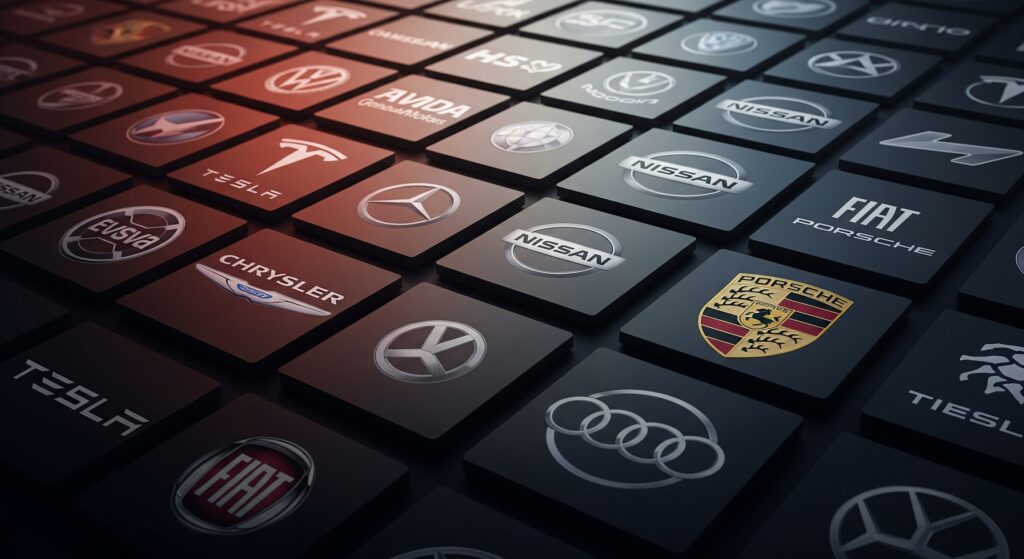
This article takes a comprehensive journey around the world, exploring the major car companies, their countries of origin, and the pivotal years of their establishment. We’ll uncover the compelling narratives behind these automotive giants, tracing their evolution from nascent workshops to global powerhouses that drive our world forward.
Germany: The Cradle of Automotive Engineering and Luxury
Germany holds a revered place in automotive history, often considered the birthplace of the modern automobile. Its manufacturers are globally synonymous with precision engineering, technological advancement, and unparalleled luxury.
- Mercedes-Benz: The narrative of Mercedes-Benz is inextricably linked to the very dawn of the automobile. Karl Benz produced his groundbreaking Patent-Motorwagen in 1886, widely regarded as the first gasoline-powered automobile. Independently, Gottlieb Daimler and his design partner Wilhelm Maybach developed their own internal combustion engines and vehicles around the same time. The eventual merger of Benz & Cie. (founded by Karl Benz in 1883) and Daimler Motoren Gesellschaft (Daimler’s company, founded in 1890) in 1926 officially formed Daimler-Benz AG, giving birth to the iconic Mercedes-Benz brand. This union brought together two of the most influential figures in automotive history, solidifying Germany’s position at the forefront of the industry.
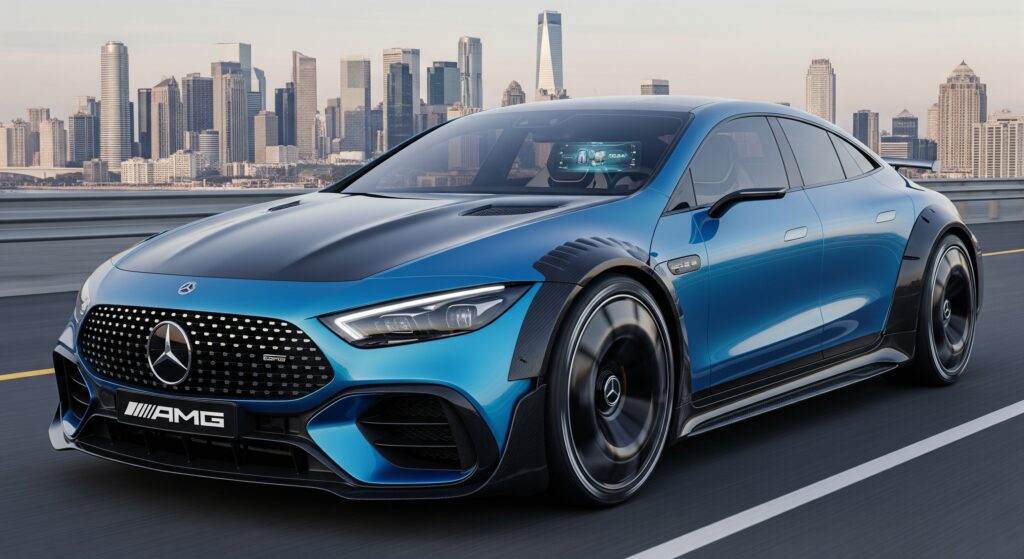
- BMW (Bayerische Motoren Werke AG): BMW’s story began not with cars, but with aircraft engines. Founded as Rapp Motorenwerke in 1913, the company initially focused on aviation. Following the Treaty of Versailles after World War I, which prohibited Germany from manufacturing military aircraft, the company pivoted to motorcycle and then automobile production. The name Bayerische Motoren Werke AG (Bavarian Motor Works) was adopted in 1922. BMW’s entry into the automotive market in the late 1920s quickly established its reputation for sporty performance and engineering excellence, a legacy that continues to define the brand today.
- Volkswagen: The “people’s car” – that’s what Volkswagen literally translates to in German, and it encapsulates the brand’s original mission. Founded in 1937 under the initiative of the German Labour Front, Volkswagen’s primary goal was to design and mass-produce an affordable car for the average German family. This vision materialized in the iconic Beetle, which became a global phenomenon. Post-World War II, under the leadership of Ivan Hirst and later Heinz Nordhoff, Volkswagen flourished, evolving into a vast automotive group that today owns numerous other renowned brands worldwide.
- Audi: While its modern resurgence occurred post-World War II, Audi’s roots stretch back to 1909. It was founded by August Horch, who had previously established A. Horch & Cie. Motorwagenwerke. After a dispute, Horch left his first company and started a new one, choosing “Audi” (the Latin translation of his surname, meaning “listen!”) as its name. Audi was part of the “Auto Union” in the 1930s, a conglomerate of four German car manufacturers (Audi, Horch, DKW, and Wanderer), symbolized by its distinctive four-ring logo. The Audi brand was revitalized under Volkswagen ownership in the mid-1960s, focusing on luxury and advanced technology.
- Porsche: Synonymous with high-performance sports cars, Porsche was founded in 1931 by Ferdinand Porsche, an Austrian automotive engineer known for his work on the Volkswagen Beetle. Initially, the company provided motor vehicle development work and consulting, rather than building cars under its own name. The first car to bear the Porsche name, the legendary Porsche 356, was introduced in 1948. From its humble beginnings, Porsche has grown into one of the world’s most profitable and desirable automotive brands, renowned for its racing heritage and iconic sports car designs.
Japan: The Ascendance of Reliability, Efficiency, and Innovation
Japan’s automotive industry rose to global prominence in the latter half of the 20th century, propelled by a dedication to quality, fuel efficiency, and cutting-edge technology, particularly in areas like hybrid and electric powertrains.
- Toyota: The world’s largest automaker by volume for many years, Toyota’s journey began in the textile industry. Kiichiro Toyoda, son of Toyota Industries founder Sakichi Toyoda, established the Toyota Motor Corporation in 1937. Inspired by visits to Western automobile plants, Kiichiro applied the principles of continuous improvement (Kaizen) and waste reduction (Jidoka) from his father’s loom business to car manufacturing. This philosophy laid the groundwork for Toyota’s renowned reputation for reliability, efficiency, and widespread appeal.
- Honda: A true engineering marvel, Honda’s origins lie in the post-war enthusiasm of its founder, Soichiro Honda. He established the Honda Technical Research Institute in 1946, initially focusing on motorizing bicycles. This quickly evolved into motorcycle production, and Honda rapidly became the world’s largest motorcycle manufacturer. The company ventured into automobile manufacturing in 1963, introducing small, fuel-efficient cars that perfectly met the demands of a changing global market. Honda is celebrated for its innovative engineering, high-revving engines, and strong presence across various mobility sectors.
- Nissan: Nissan’s lineage can be traced back to the Kwaishinsha Motor Car Works, established in 1911, which later produced the “DAT” car. The company that eventually became Nissan was formally established in 1933 as Jidosha Seizo Co., Ltd., and renamed Nissan Motor Co., Ltd. the following year. Its early history involved mergers and acquisitions, and it played a significant role in Japan’s post-war industrial growth. Nissan has a long history of global expansion and is known for its diverse range of vehicles, from economical sedans to powerful SUVs and pioneering electric vehicles like the Leaf.
- Mazda: Founded in 1920 in Hiroshima as Toyo Cork Kogyo Co., Ltd., Mazda initially focused on cork manufacturing. Under the leadership of its later president, Jujiro Matsuda, the company shifted its focus to machine tools and then to the production of three-wheeled “auto-rickshaws” in the early 1930s. The name “Mazda” first appeared on these vehicles in 1934, derived from Ahura Mazda, a god of harmony and intelligence, and also conveniently similar to Matsuda’s surname. Mazda is distinctive for its commitment to unique engineering solutions, particularly its development of the rotary engine, and its focus on driving dynamics.
- Subaru: While the name “Subaru” is synonymous with symmetrical all-wheel drive and boxer engines today, the company’s roots are in aircraft manufacturing. Fuji Heavy Industries, the parent company of Subaru, was established in 1953 through the merger of five Japanese companies. Its automotive division, launching the Subaru 360 minicar in 1958, marked its formal entry into the car market. The name “Subaru” is the Japanese name for the Pleiades star cluster, reflecting the five companies that merged to form Fuji Heavy Industries.
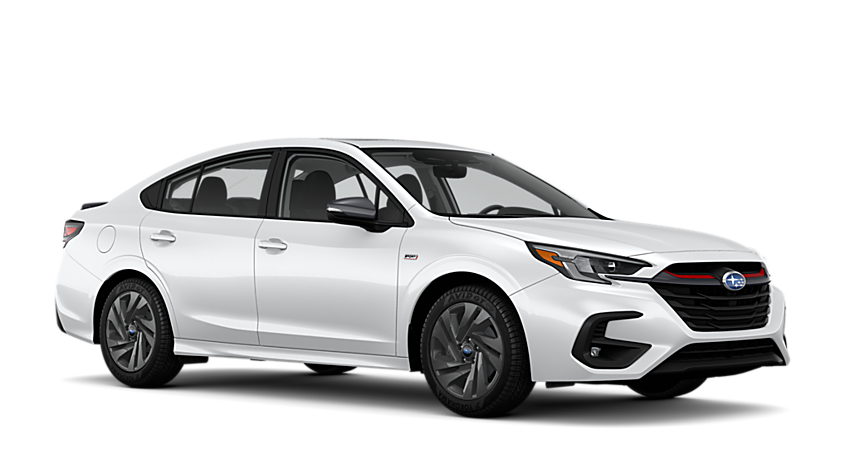
United States: The Birthplace of Mass Production and Automotive Culture
The United States dramatically reshaped the automotive landscape, pioneering mass production techniques that made cars affordable for the general public and fostering a vibrant car culture.
- Ford Motor Company: A cornerstone of the American automotive industry, Ford was founded by the visionary Henry Ford in 1903. Ford’s revolutionary introduction of the moving assembly line in 1913 for the production of the Model T democratized car ownership, transforming the automobile from a luxury item into a necessity. His commitment to efficiency and affordability fundamentally altered manufacturing practices worldwide and left an indelible mark on industrial history.
- General Motors (GM): A complex conglomerate of automotive brands, General Motors was founded by William C. Durant in 1908. Durant, a master dealmaker, began acquiring numerous smaller car manufacturers, bringing them under the GM umbrella. This strategy created a diversified portfolio of brands, each targeting different market segments, including Buick (founded 1899), Cadillac (founded 1902), and ultimately Chevrolet. GM’s sprawling structure and comprehensive product lineup allowed it to dominate the American and global automotive markets for much of the 20th century.
- Chevrolet: Though part of General Motors, Chevrolet deserves individual mention due to its immense popularity and distinct identity. It was co-founded by Swiss race car driver and engineer Louis Chevrolet and William C. Durant in 1911. Chevrolet quickly established itself as a direct competitor to Ford’s Model T, offering reliable and stylish cars that appealed to a broad consumer base. “Chevy” remains one of the most recognized and beloved automotive brands globally.
- Chrysler: Founded by Walter P. Chrysler in 1925, this American automaker quickly made a name for itself with innovative engineering and stylish designs. Chrysler built upon the remnants of the Maxwell Motor Company and introduced the groundbreaking Chrysler Six, which set new standards for its price range. Throughout its history, Chrysler has been known for its engineering prowess and distinct American styling, though it has undergone several mergers and acquisitions, now forming a key part of the multinational Stellantis group.
- Tesla: A relatively young but incredibly disruptive force, Tesla Motors (now Tesla, Inc.) was founded in 2003 by Martin Eberhard and Marc Tarpenning, with Elon Musk becoming a major investor and chairman in 2004, eventually taking on the role of CEO. Tesla’s singular focus on electric vehicles, high-performance battery technology, and direct-to-consumer sales has revolutionized the automotive industry and spurred a global shift towards electrification.
Europe (Excluding Germany): A Tapestry of Style, Performance, and Heritage
Beyond Germany, Europe boasts a rich automotive heritage, with countries like Italy, France, Sweden, and the United Kingdom contributing distinct styles, engineering philosophies, and iconic brands.
Italy: Artistry, Passion, and Speed
Italy’s automotive industry is renowned for its breathtaking design, unparalleled performance, and deep emotional connection to the automobile.
- Fiat (Fabbrica Italiana Automobili Torino): Founded in 1899 by a group of investors, including Giovanni Agnelli, Fiat quickly became Italy’s largest automobile manufacturer. From its Turin base, Fiat played a crucial role in motorizing Italy and expanded its influence globally. Over its long history, Fiat has produced everything from economical city cars to sports cars, and is now a central brand within the Stellantis conglomerate.
- Ferrari: The epitome of automotive passion and high-performance, Ferrari was founded in 1947 by the legendary Enzo Ferrari. Initially, Ferrari’s primary focus was on motor racing, and the road cars were essentially a means to fund his racing ambitions. Each Ferrari car is a masterpiece of engineering and design, carrying a racing heritage that is virtually unmatched, and inspiring a cult following worldwide.
- Lamborghini: The creation of Lamborghini is steeped in legend, stemming from a rivalry between its founder, Ferruccio Lamborghini, and Enzo Ferrari. Ferruccio Lamborghini, a successful manufacturer of tractors and heating systems, founded Automobili Lamborghini in 1963 with the intention of building grand touring cars that he felt were superior to Ferrari’s. Lamborghini cars are characterized by their aggressive styling, powerful engines, and uncompromising performance.
- Alfa Romeo: With a history stretching back to 1910 in Milan, Alfa Romeo (originally A.L.F.A. – Anonima Lombarda Fabbrica Automobili) has always been associated with sporting prowess and elegant design. The brand has a strong racing heritage and is celebrated for producing drivers’ cars that blend performance with Italian flair.
France: Innovation, Style, and Mass Appeal
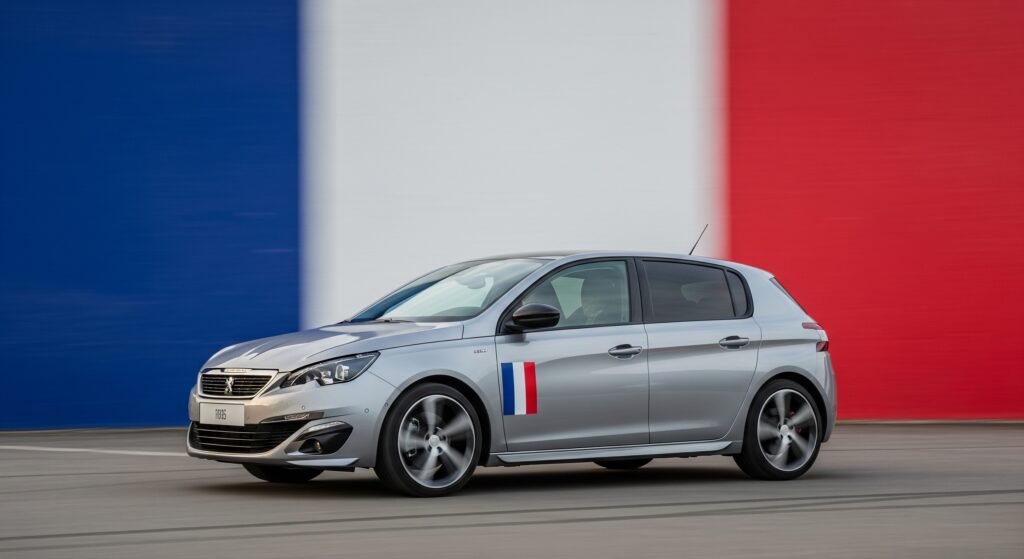
France has a proud automotive history, marked by innovative engineering, distinctive design, and a focus on practical, mass-market vehicles.
- Renault: One of the oldest and most established car manufacturers, Renault was founded by the three Renault brothers, Louis, Marcel, and Fernand, in 1898. The company quickly gained recognition for its innovative designs and strong performance in early motor racing. Renault has consistently been a leader in mass-market car production, known for its practicality, safety features, and, more recently, its pioneering work in electric vehicles.
- Peugeot: Peugeot’s industrial history dates back to the early 19th century, initially manufacturing coffee mills, bicycles, and other tools. The company’s first automobile was produced in 1889, though its formal automotive company, Société Anonyme des Automobiles Peugeot, was established in 1896. Peugeot has a reputation for building robust, stylish, and comfortable cars, and has been a significant force in both European and global markets.
- Citroën: Founded by André-Gustave Citroën in 1919, Citroën quickly became known for its daring engineering and avant-garde designs. Citroën introduced many innovations, including the first mass-produced front-wheel-drive car (the Traction Avant) and hydropneumatic self-leveling suspension. The brand has consistently pushed boundaries in comfort, design, and technology.
United Kingdom: Luxury, Performance, and Heritage
The UK has been home to numerous prestigious automotive brands, often synonymous with luxury, craftsmanship, and sporting heritage.
- Rolls-Royce: The epitome of automotive luxury, Rolls-Royce was founded in 1904 by the partnership of engineer Henry Royce and automobile dealer Charles Rolls. Their shared commitment to excellence and meticulous craftsmanship resulted in cars of unparalleled quality and refinement. Rolls-Royce vehicles are not merely transportation; they are symbols of status and bespoke artistry. While now owned by BMW, the vehicles continue to be built in England, maintaining their British heritage.
- Jaguar: From its origins as the Swallow Sidecar Company in 1922 (later SS Cars Ltd.), Jaguar evolved into a manufacturer of elegant sports cars and luxury sedans. The name “Jaguar” was adopted in 1945 to avoid association with the SS initials after World War II. Jaguar cars are known for their distinctive styling, powerful engines, and blend of luxury and performance. It is currently part of the Indian Tata Motors group.
- Land Rover: While technically born out of Rover (established 1878, making bicycles), the first Land Rover was conceived in 1947 and launched in 1948 as a rugged, go-anywhere vehicle. Inspired by the American Willys Jeep, Land Rover quickly established itself as a leader in off-road capability. The brand has evolved to offer a range of luxury SUVs, while retaining its adventurous spirit. Like Jaguar, it is now owned by Tata Motors.
Sweden: Safety and Innovation
Sweden’s automotive industry is renowned for its commitment to safety, practical design, and environmental consciousness.
- Volvo: Founded in 1927 by Assar Gabrielsson and Gustaf Larson, Volvo has consistently prioritized safety in its vehicle design and manufacturing. The company introduced numerous safety innovations that became industry standards, including the three-point seatbelt. Beyond safety, Volvo is known for its robust engineering, practical design, and recent strides in electric and autonomous vehicle technology. While the car division is now owned by Geely (China), Volvo’s trucks and construction equipment remain Swedish-owned.
South Korea: Rapid Growth and Global Expansion
South Korea’s automotive industry has experienced phenomenal growth in a relatively short period, becoming a significant force in the global market.
- Hyundai: Founded in 1967 by Chung Ju-yung as part of the larger Hyundai Group, Hyundai Motor Company initially focused on building cars under license from Ford. However, it quickly developed its own models and embarked on an ambitious global expansion strategy. Hyundai is now known for its modern designs, comprehensive feature sets, and aggressive push into electric and hydrogen fuel cell vehicles.
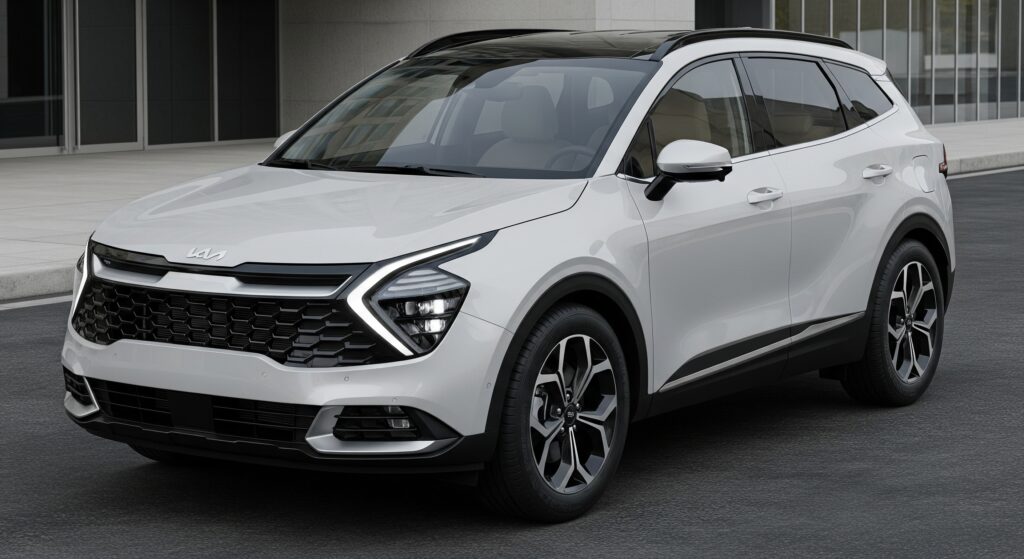
- Kia: Established in 1944 as a manufacturer of steel tubing and bicycle parts, Kia produced its first motorcycle in 1957 and its first car in 1974. After facing financial difficulties in the late 1990s, Kia was acquired by Hyundai Motor Company in 1998. Since then, Kia has undergone a remarkable transformation, becoming known for its stylish designs, strong value proposition, and increasing quality.
China: The New Frontier of Automotive Manufacturing
While many Chinese automotive manufacturers are relatively young compared to their Western and Japanese counterparts, China has rapidly emerged as the world’s largest automotive market and a burgeoning hub for car production and innovation, particularly in electric vehicles.
- BYD Auto: One of the most prominent Chinese automakers, BYD Auto was founded in 2003 as a subsidiary of BYD Company, a leading rechargeable battery manufacturer. Leveraging its battery expertise, BYD has become a global leader in electric vehicles (EVs) and plug-in hybrids, showcasing China’s formidable capabilities in new energy vehicles.
- Geely: Founded in 1986 by Li Shufu, Geely Holding Group began as a refrigerator manufacturer before venturing into motorcycles in 1994 and then automobiles in 1997. Geely has grown rapidly, notably acquiring Volvo Cars from Ford in 2010, and also owns brands like Lotus and Polestar. It represents the ambition and global reach of Chinese private enterprises in the automotive sector.
- SAIC Motor (Shanghai Automotive Industry Corporation): As a state-owned enterprise, SAIC Motor is one of China’s “Big Four” automakers. While its direct passenger car brands like Roewe and MG are more recent, SAIC’s history dates back to 1955 with vehicle manufacturing. It has numerous joint ventures with global giants like General Motors and Volkswagen, producing millions of vehicles annually for the Chinese market.
Top 15 Electric Cars in the United States to Watch in 2025
India: A Growing Force in the Global Automotive Landscape
India’s automotive industry is expanding rapidly, driven by a large domestic market and a growing export presence.
- Tata Motors: Part of the vast Tata Group, Tata Motors was established in 1945 and initially focused on manufacturing locomotives. It entered the commercial vehicle segment in 1954 and the passenger vehicle market in 1991. Tata Motors made global headlines with its acquisition of the iconic British brands Jaguar and Land Rover from Ford in 2008, showcasing India’s growing influence on the international automotive stage.
- Mahindra & Mahindra: Founded in 1945 by J.C. Mahindra, K.C. Mahindra, and Malik Ghulam Muhammad (who later left for Pakistan), Mahindra & Mahindra began by assembling Willys Jeeps in India. It has since diversified into a wide range of vehicles, including utility vehicles, SUVs, and commercial vehicles. Mahindra is known for its rugged and versatile offerings and has a significant presence in agricultural machinery as well.
A Legacy of Vision and Transformation
The stories of these major car companies are not just about manufacturing vehicles; they are sagas of entrepreneurial vision, engineering breakthroughs, economic shifts, and cultural evolution. From the pioneering efforts of Benz and Daimler to the mass-market revolution of Ford, the quality and efficiency drives of Japan, the luxury and performance ethos of Europe, and the rapid rise of South Korea and China, each nation and each company has left an indelible mark.
As the automotive world continues to embrace electric propulsion, autonomous driving, and new mobility solutions, these historical foundations provide a crucial context. The ingenuity and determination that built these empires will undoubtedly continue to drive the industry forward, shaping how we travel and interact with the world for generations to come. The global automotive industry, built on a century of internal combustion engine dominance, is now in the throes of a profound transformation. The major car companies, whose origins and legacies we’ve explored, are navigating a complex landscape defined by technological disruption, shifting consumer preferences, and urgent environmental mandates.
The Cheapest New Cars with the Best Deals in 2025!
The Road Ahead: Key Trends and Innovations
The future of the automotive industry is being shaped by several overarching trends, with established players making significant investments to remain competitive:
- Electrification Takes the Driver’s Seat: This is arguably the most significant shift. Major car companies are pouring billions into developing and producing Electric Vehicles (EVs) and Plug-in Hybrid Electric Vehicles (PHEVs).
- Volkswagen Group is investing heavily in its “MEB” and “PPE” platforms to underpin a wide range of EVs across its brands (VW, Audi, Porsche, Skoda, etc.). Their stated goal is to have a significant portion of their sales be EVs in the coming years.
- General Motors has committed to an “all-electric future,” with substantial investments in battery technology (like their Ultium platform) and a diverse lineup of EV models across brands like Chevrolet, Cadillac, and GMC.
- Ford is scaling up its EV production, with popular models like the F-150 Lightning and Mustang Mach-E leading the charge.
- Mercedes-Benz and BMW are rapidly expanding their “EQ” and “i” sub-brands, respectively, offering luxury electric vehicles that combine performance with cutting-edge technology.
- Toyota, while a pioneer in hybrids, is accelerating its pure EV development, acknowledging the growing demand for battery-electric cars.
- Hyundai and Kia have emerged as strong contenders in the EV space, with highly acclaimed models built on dedicated EV platforms (E-GMP), offering impressive range and fast charging capabilities.
- Chinese giants like BYD are leading the charge in EV sales globally, leveraging their in-house battery production capabilities to offer competitive and innovative electric vehicles.
- Autonomous Driving – From Assistance to Autonomy: While fully autonomous (Level 5) vehicles are still some way off for widespread public adoption, major automakers are heavily investing in Advanced Driver-Assistance Systems (ADAS) and progressively higher levels of autonomy.
- Companies like Tesla are at the forefront, with their “Full Self-Driving” (FSD) beta pushing the boundaries of current technology.
- Traditional automakers are collaborating with tech companies and developing their own systems. Waymo (Alphabet subsidiary) has partnerships with Stellantis (which includes Fiat, Chrysler, Peugeot, Citroën, etc.), Volvo Cars, and Mercedes-Benz, deploying robotaxi services in select cities.
- General Motors is heavily invested in its Cruise autonomous vehicle subsidiary.
- Toyota has a dedicated research institute for artificial intelligence and autonomous driving, exploring various approaches to safe and efficient self-driving.
- BMW and Mercedes-Benz are developing sophisticated Level 2+ and Level 3 systems that allow for hands-off driving in specific conditions.
- Chinese companies like Li Auto are rapidly advancing their autonomous driving systems, leveraging massive datasets for AI training.
- Software-Defined Vehicles (SDVs) and Connectivity: The car is transforming from a piece of hardware into a software platform. This means vehicles will be constantly updated, offer personalized experiences, and seamlessly integrate with digital ecosystems.
- This trend involves significant investment in in-house software development and partnerships with tech giants.
- Mercedes-Benz and BMW are building comprehensive operating systems for their vehicles, allowing for over-the-air (OTA) updates and a suite of digital services.
- Volkswagen is consolidating its software development efforts, aiming for a unified software architecture across its brands.
- Ford and GM are developing connected car platforms that offer everything from remote diagnostics to integrated infotainment and concierge services.
- Sustainable Manufacturing and Circular Economy: Beyond the vehicles themselves, automakers are increasingly focusing on sustainable production processes, reducing their carbon footprint in factories, and exploring circular economy models where materials are reused and recycled.
- Many companies are setting ambitious targets for carbon neutrality in their production facilities.
- There’s a growing trend towards using recycled and bio-based materials in vehicle interiors and exteriors.
- Volvo, for instance, has been a leader in promoting sustainable practices throughout its supply chain and product lifecycle.
- Mobility-as-a-Service (MaaS): The concept of car ownership is evolving, particularly in urban areas. Car companies are exploring and investing in ride-sharing, car-sharing, and subscription services, transitioning from solely selling vehicles to offering comprehensive mobility solutions.
- Many brands now offer subscription services where customers can swap between different models.
- Investments in micro-mobility (e-scooters, e-bikes) and last-mile delivery solutions are also part of this broader trend.
2025 Ford Mustang Dark Horse – Unleashing Street-Legal Track
Challenges on the Horizon
Despite the exciting innovations, major car companies face significant hurdles:
- The Cost of Transformation: The shift to EVs and autonomous driving requires enormous R&D investments, retooling factories, and building new supply chains (especially for batteries). This puts immense financial pressure on even the largest automakers.
- Supply Chain Resilience: The COVID-19 pandemic and geopolitical tensions exposed the fragility of global supply chains, particularly for semiconductors. Companies are working to diversify suppliers and localize production to mitigate future disruptions.
- Talent Gap: The industry needs a new generation of skilled workers in software development, battery technology, and AI, creating a challenge in attracting and retaining top talent.
- Charging Infrastructure: The widespread adoption of EVs hinges on a robust and accessible charging infrastructure, which requires significant investment from both public and private sectors.
- Geopolitical Competition: The rise of Chinese EV manufacturers presents stiff competition, particularly in terms of cost and speed of innovation, prompting Western automakers to re-evaluate their strategies. Protectionist measures, like tariffs, are also adding complexity.
- Profitability of EVs: While EV sales are growing, many legacy automakers are still striving to make them as profitable as their traditional internal combustion engine counterparts, especially in the more affordable segments.
- Regulatory Compliance: Ever-tightening emission standards, safety regulations, and data privacy laws across different regions add layers of complexity and cost to vehicle development.
- Consumer Adoption: While interest in EVs is growing, concerns about range anxiety, charging times, upfront cost, and charging infrastructure availability still need to be addressed for mass adoption.
The Enduring Spirit of Innovation
Despite these challenges, the major car companies, with their deep roots and vast resources, are showing remarkable resilience and adaptability. The spirit of innovation that defined their origins continues to drive them today. They are not merely reacting to changes but actively shaping the future of mobility, demonstrating that the industry built on the vision of pioneering engineers and entrepreneurs remains a dynamic and vital force in the 21st century. The next few decades promise to be a fascinating chapter in the history of the automobile, as these giants continue to redefine what it means to drive.
Here are some Frequently Asked Questions (FAQs) about major car companies and their origin countries, based on the article we previously discussed:
Your Part-Time Income: How Youth Buy Cars in the USA
Cars and Their Countries: Your Top Questions Answered!
Have you ever wondered where your favorite car brand comes from, or which country is a powerhouse in automotive manufacturing? Here are some common questions and their answers, based on the rich history of global car companies!
Q1: Which country is widely considered the birthplace of the modern automobile?
A1: Germany is generally regarded as the birthplace of the modern automobile. Pioneers like Karl Benz and Gottlieb Daimler independently developed gasoline-powered cars there in 1886.
Q2: What are some major German car brands and when were they established?
A2: Germany is home to several iconic car brands:
- Mercedes-Benz: Formed in 1926 (tracing roots back to 1886).
- BMW: Adopted its current name in 1922, with origins in 1913.
- Volkswagen: Founded in 1937.
- Audi: Its heritage stretches back to 1909, revitalized under VW in 1965.
- Porsche: Founded in 1931.
Q3: Which country is known for mass production and making cars affordable for the public?
A3: The United States revolutionized car manufacturing with Henry Ford’s introduction of the moving assembly line in 1913, making cars accessible to the masses.
Q4: Name some prominent American car companies and their establishment years.
A4: Key American automakers include:
- Ford Motor Company: Founded in 1903.
- General Motors (GM): Established in 1908.
- Chevrolet: Co-founded in 1911 (now a GM brand).
- Chrysler: Founded in 1925.
- Tesla: A newer disruptive force, founded in 2003.
Q5: What country is renowned for reliability, fuel efficiency, and pioneering hybrid technology?
A5: Japan has a strong reputation for producing highly reliable, fuel-efficient, and technologically advanced vehicles, especially in hybrid and electric powertrains.
Q6: Can you list some major Japanese car brands and their founding years?
A6: Leading Japanese car manufacturers include:
- Toyota: Founded in 1937.
- Honda: Established in 1946 (motorcycles) and began car production in 1963.
- Nissan: Formally established in 1933 (with roots from 1914).
- Mazda: Founded in 1920.
- Subaru: Its parent company, Fuji Heavy Industries, was established in 1953.
Q7: Which country has seen a rapid rise in its automotive industry in recent decades, known for modern designs and value?
A7: South Korea has rapidly become a significant global player in the automotive market, noted for its contemporary designs and strong value propositions.
Q8: What are the main South Korean car companies and their establishment years?
A8: The primary South Korean automakers are:
- Hyundai: Founded in 1967.
- Kia: Established in 1944.
Q9: Which European country is famous for luxury, passion, and high-performance sports cars?
Q9: Italy is celebrated for its automotive artistry, breathtaking designs, and high-performance luxury vehicles.
Q10: Name some iconic Italian car brands and their founding dates.
A10: Notable Italian car brands include:
- Fiat: Founded in 1899.
- Ferrari: Founded in 1947.
- Lamborghini: Established in 1963.
- Alfa Romeo: Established in 1910.
- Maserati: Founded in 1914.
Q11: Which country is known for pioneering safety features in its vehicles?
A11: Sweden has a strong global reputation for its commitment to vehicle safety, with brands known for introducing groundbreaking safety innovations.
Q12: What is the main Swedish car brand and when was it founded?
A12: The most famous Swedish car brand is Volvo, founded in 1927.
Q13: What about France? What are its key car manufacturers?
A13: France has a rich history in automotive engineering and design, with major brands like:
- Renault: Founded in 1898.
- Peugeot: First automobile produced in 1889, formal company in 1896.
- Citroën: Founded in 1919.
Q14: Are there significant British car brands, and are they still British-owned?
A14: The UK has many prestigious car brands known for luxury and performance. While many maintain their British heritage, several are now owned by international companies:
- Rolls-Royce: Founded in 1904 (now owned by BMW, Germany).
- Jaguar: Evolved from a company founded in 1922 (now owned by Tata Motors, India).
- Land Rover: Launched in 1948 (now owned by Tata Motors, India).
- Bentley: Founded in 1919 (now owned by Volkswagen Group, Germany).
- Aston Martin: Founded in 1913 (British-owned, but with various investment partners).
Q15: Which country is currently the world’s largest automotive market and a major hub for EV production?
A15: China is the world’s largest automotive market and has rapidly become a leading force in electric vehicle manufacturing and innovation.
Q16: Can you name some major Chinese car manufacturers?
A16: Prominent Chinese automakers include:
- BYD Auto: Founded in 2003.
- Geely: Began automobile production in 1997.
- SAIC Motor: Has roots in vehicle manufacturing from 1955.
- Nio, Xpeng, Li Auto: Newer EV startups founded in the 2010s.
Q17: What are the main car brands from India?
A17: India has a growing automotive industry with key players like:
- Tata Motors: Established in 1945.
- Mahindra & Mahindra: Founded in 1945.